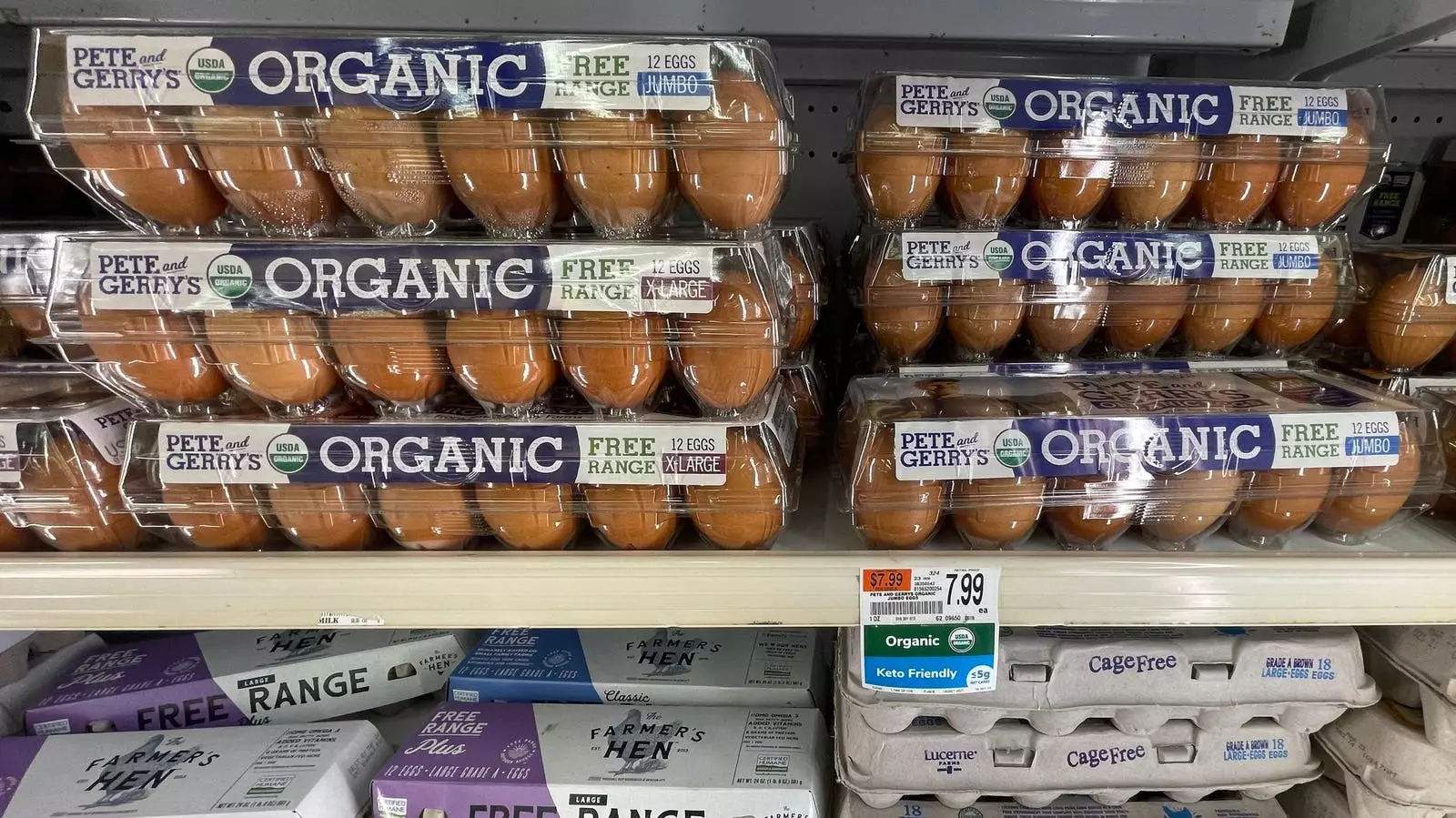Eggs have long been a staple in kitchens across the world, often taken for granted as one of the most fundamental food items available. From a simple fried egg on a Sunday morning to a crucial ingredient in cakes and salads, they have served as the unsung heroes of home cooking. Recently, however, the landscape surrounding this common commodity has shifted dramatically, thrusting eggs into the limelight not just as a dietary staple, but as a symbol of vulnerability in the modern food supply chain. The recent theft of 100,000 organic eggs in Pennsylvania for a staggering value of $40,000 epitomizes this unsettling trend that beckons us all to reconsider our perceptions about food security and economic value.
Gone are the days when a carton of eggs was merely a few dollars at the grocery store. Due to avian flu outbreaks and subsequent supply chain issues, egg prices have skyrocketed, doubling in 2022 and maintaining a high threshold into 2025. Such fluctuations have not simply placed pressure on consumers’ wallets; they have elevated eggs to a status previously reserved for luxury goods. This unprecedented shift underscores a critical point: as basic commodities become more costly and harder to obtain, their status within the food economy becomes more pronounced, leading to unexpected vulnerabilities throughout the distribution chain.
The alarming statistic shared by CargoNet—a 27% increase in cargo theft incidents in the U.S. and Canada—reveals that high-value consumables, including eggs, are becoming major targets. This is no longer about people simply stealing food; it’s an indication of a more significant economic reality where accessibility and affordability are at a severe risk. What does it say when eggs, a long-time pillar of American households, are now considered so valuable that robbers might devise elaborate plans to steal them? This theft is not solely about breakfast; it highlights a troubling trend in the broader context of food distribution and accessibility.
The heist at Pete & Gerry’s Organic Eggs is not merely an isolated case but part of a worrying global trend. Food theft is increasingly becoming a phenomenon, with stories such as the Great Canadian Maple Syrup Heist and California’s dramatic Nut Crimewave showcasing that when economic conditions become strained, even the most mundane items can be seen as desirable assets. Qualifying as a new form of crime, these instances of food theft demonstrate that what we consider reliable and common can, in fact, evolve into the focus of criminal activity.
In a world where high-value food items like Nutella and beehives have been similarly targeted, the trend raises questions about the security of our food systems. One might wonder: what’s next? Other staples might soon fall victim to theft if the food supply crisis continues, compounding issues of insecurity for both consumers and producers alike. Such incidents can lead to cascading effects, including even higher prices for everyday items, and inevitably raise consumer anxiety about food security.
The heist that resulted in 100,000 stolen organic eggs serves as a stark reminder of the fragility underlying our food systems. With ongoing inflation, labor shortages, and logistical challenges permeating the agricultural landscape, the efficacy of our food supply chain is increasingly in question. The act of stealing eggs emphasizes a larger narrative about the pressing need for improved protections and frameworks to uphold food distribution, ensuring that essentials remain accessible and secure.
As the Pennsylvania State Police conduct their investigations, the fallout from this incident may prompt systemic changes in how food producers manage their inventories and establish security. Consumers will undoubtedly face consequences in the form of heightened prices and scarcity—a clear indication that even the most basic aspects of life are not immune to the impacts of crime and economic volatility.
In light of the soaring prices and increasing incidents of food theft, it is imperative to reevaluate how we perceive and engage with food. Eggs, long serving as an everyday staple, have transformed into economic assets that are vulnerable to the whims of a chaotic marketplace. This troubling development invites us to rethink our relationship with food and, more critically, to engage in conversations about food security, sustainability, and the future of agricultural practices. As we navigate these shifts, it becomes vital for consumers to remain vigilant and aware, recognizing that even the simplest meal can embody complexities in our ever-changing world. Ultimately, the story of the stolen eggs reflects a profound narrative about economic shifts, societal vulnerabilities, and the fragility of our food systems.


Leave a Reply